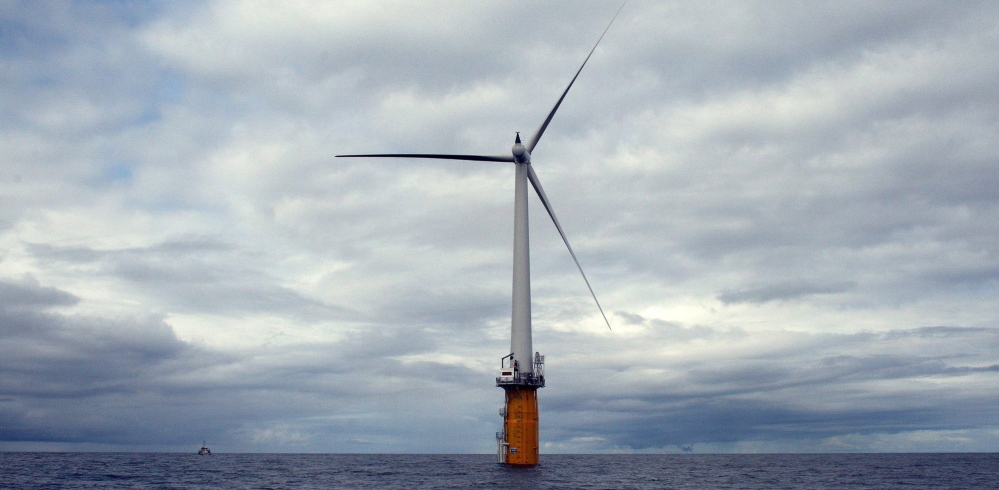Workers building Germany’s massive North Sea offshore wind farm needed a place to stay on the resort island of Heligoland, so their employers rented them some rooms in the island’s biggest hotel. They rented every room in the hotel for every night for the next 10 years.
This anecdote, reported in The New York Times on Sunday, is a small indication of the size of Germany’s investment in renewable energy and the length of time the transition is expected to take. Germany, which has a booming manufacturing economy, is betting that new technologies and improvements to old ones will create clean power at a predictable rate that will give it an economic advantage over countries hooked on coal, oil and gas.
This is an example of what could happen in this country, especially in New England, which has no indigenous fossil fuels but is rich in the wind, sun, rivers and tides that could produce emission-free electricity long into the future, with no fuel costs. It’s a matter of making the right decisions now to create the conditions that would attract the private investment needed to make the transition.
Renewable energy is sometimes derided as too expensive to compete with other sources, particularly power generated from natural gas. Most people who make that argument usually ignore the fact that thanks to the technological advances in gas extraction, inflation-adjusted natural gas prices are at a 30-year low. As more heavy-polluting coal plants are phased out, the increased demand for gas could drive up its price with little warning.
A gas price increase could do real damage to the New England economy, because we currently get more than half our electricity from gas-burning generators. Once the price spikes, it will be too late to switch to alternative power sources.
Germany is not waiting, and neither should we.
Maine and New England should be making the kinds of investments that would diversify their energy portfolio. That means modernizing the electric grid to accommodate distributed generation from small biomass, wind and solar projects; beefing up our investment in energy efficiency, and creating ways for homeowners and businesses to finance energy upgrades so they can start reaping the economic benefits from these investments as soon as they are made.
Plans to make renewable energy an economic asset for Maine are in the platforms of the two men who are challenging Gov. LePage – Democrat Mike Michaud and independent Eliot Cutler.
These ideas are not in the energy policy of Gov. LePage, who skipped out of last week’s E2Tech energy conference without speaking because he objected to sharing the stage with his challengers.
Throughout his term, Gov. LePage has focused on lowering energy costs by chasing the mirage of low-cost hydropower from Quebec and building a pipeline from the Pennsylvania gas fields to New England. He has turned his back on local sources of energy, including his unforgivable effort to chase away a $120 million investment in an experimental offshore wind farm in Maine by the Norwegian energy giant Statoil. This shortsighted ploy may shave a few pennies off people’s electric bills in the short run, but we may be sorry later when we don’t have access to a predictable source of energy at a predictable cost and we lose out on the thousands of jobs that would have to be created to build the capacity.
These are the kinds of jobs that private-sector investors are creating in Germany right now, thanks to some thoughtful public policy choices made over years by the country’s leaders. That’s the kind of leadership we should demand in Maine.
Copy the Story LinkSend questions/comments to the editors.



Success. Please wait for the page to reload. If the page does not reload within 5 seconds, please refresh the page.
Enter your email and password to access comments.
Hi, to comment on stories you must . This profile is in addition to your subscription and website login.
Already have a commenting profile? .
Invalid username/password.
Please check your email to confirm and complete your registration.
Only subscribers are eligible to post comments. Please subscribe or login first for digital access. Here’s why.
Use the form below to reset your password. When you've submitted your account email, we will send an email with a reset code.